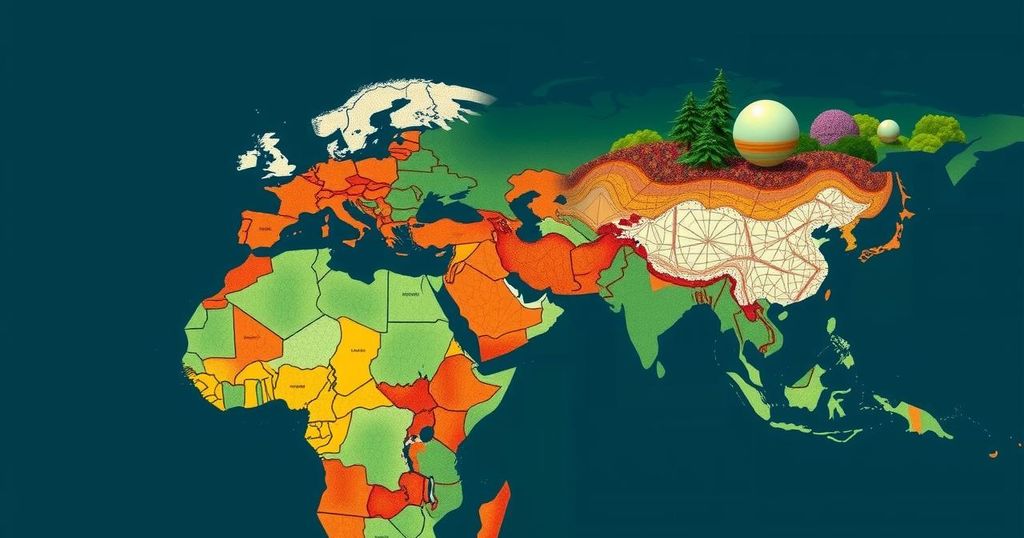Wealthier nations are beginning to financially assist poorer countries affected by climate change, exemplified by the case of Cyclone Freddy in Malawi. Approximately $720 million has been pledged towards loss and damage compensation, but experts warn this is insufficient given the increasing frequency of climate-related disasters. The ongoing COP29 summit is negotiating the financial responsibilities of developed nations as they respond to the urgent needs of vulnerable populations.
The impacts of climate change are escalating, particularly affecting poorer nations that have contributed minimally to global emissions. A recent example is Christopher Bingala from Malawi, whose family was left homeless due to Cyclone Freddy. Fortunately, he received a payment of approximately $750 as part of a new initiative for “loss and damage” compensation aimed at helping low-income countries rebuild after climate-related disasters. This funding mechanism, endorsed by wealthier nations last year, has thus far garnered pledges of around $720 million, primarily from the European Union, the United States, and the United Arab Emirates. However, experts warn this amount falls short of the escalating climate challenges.
At the ongoing COP29 climate summit in Azerbaijan, negotiations are underway to determine the financial responsibilities of affluent countries towards the developing world as part of a broader climate finance package which encompasses loans and investments. Philip Davis, the Prime Minister of the Commonwealth of the Bahamas, expressed hope that wealthier nations will acknowledge the damage their carbon emissions have inflicted on vulnerable populations.
Following the cyclone, Bingala’s situation exemplified the dire circumstances faced by countless families who were displaced as the cyclone wreaked havoc, displacing over 650,000 individuals in Malawi alone. His experience highlights the pressing need for substantial financial support for low-income households left vulnerable without adequate safety nets. The funds they receive enable them to reconstruct their lives, often facilitating the purchase of essential resources for agriculture or education.
Scotland is a pioneer in earmarking funds specifically for loss and damage, providing essential resources to affected communities. Meanwhile, experts like Yolande Wright from GiveDirectly underline the stark protection gaps faced by low-income groups in developing countries when confronted with climate-induced calamities. This pilot initiative in Malawi may serve as a potential model for a comprehensive loss and damage funding system, anticipated to emerge as nations strive to combat climate change’s growing toll.
The topic of climate change and its associated consequences is increasingly urgent, particularly as developing nations, which contribute relatively low emissions, bear the brunt of its impacts. The recent commitment by wealthier countries to establish a fund dedicated to addressing loss and damage caused by climate disasters marks a significant shift in global climate finance. The need for such measures has become evident as extreme weather events intensify, necessitating immediate financial assistance to help vulnerable populations rebuild and adapt. Cyclone Freddy’s devastating impact on Malawi serves as a compelling case of the kind of challenges facing these nations and the importance of global solidarity in addressing climate change.
In conclusion, the establishment of a loss and damage compensation fund represents a crucial step towards addressing the inequities in climate change impacts between wealthier and poorer nations. As the frequency and severity of climate disasters escalate, the need for adequate funding grows. The plight of individuals like Christopher Bingala demonstrates how timely financial support can restore lives and livelihoods. However, as experts caution, current commitments may still fall short of what is necessary to effectively respond to the mounting climate challenges ahead. Hence, a collective commitment to substantial contributions from affluent countries is imperative to avert a worsening global crisis.
Original Source: www.wypr.org






